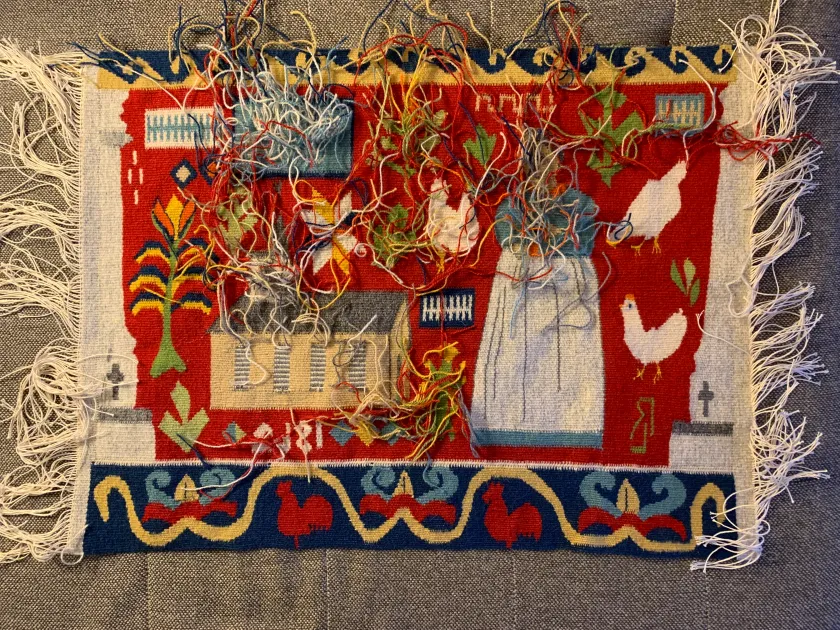Threads of Grace: Personal Ministry in the Tapestry of Missio Dei
The missio Dei, Latin for “mission of God,” is a theological concept that frames mission as originating from God’s own nature and purpose, rather than being solely a human or ecclesiastical endeavor. It emphasizes God’s initiative in redeeming and restoring the world, with the church and individual believers participating as instruments in this divine mission. The interplay between individual spiritual gifts and personal ministry roles is vital to advancing the missio Dei, as these elements enable believers to contribute uniquely and collectively to God’s redemptive work. Below is an exploration of how these individual aspects support the missio Dei, grounded in biblical principles and theological reflection.
Individual Spiritual Gifts and the Missio Dei
Spiritual gifts are special abilities given by the Holy Spirit to believers for the purpose of building up the church and advancing God’s kingdom (1 Corinthians 12:7, Ephesians 4:11-12). These gifts—such as teaching, prophecy, service, leadership, mercy, or evangelism—are diverse, reflecting the multifaceted nature of God’s mission. Their role in the missio Dei lies in equipping individuals to participate actively in God’s plan, each according to their unique calling.
Diversity Reflecting God’s Nature
The variety of spiritual gifts mirrors the Trinitarian unity-in-diversity of God—Father, Son, and Holy Spirit working in harmony yet distinctly. For example, Romans 12:4-8 likens the church to a body with many parts, each contributing differently but essential to the whole. This diversity ensures that the missio Dei—which encompasses evangelism, justice, reconciliation, and care for creation—can be pursued holistically, addressing spiritual, social, and physical needs.
Empowerment for Mission
Spiritual gifts empower believers to engage in God’s mission where they are planted. In 1 Corinthians 12:7, Paul states that each gift is given “for the common good,” aligning individual contributions with the broader purpose of God’s redemptive work. For instance, the gift of teaching equips someone to impart biblical truth, strengthening the church’s witness, while the gift of generosity (Romans 12:8) enables practical support for the poor, reflecting God’s compassion in tangible ways.
Advancing the Kingdom Beyond the Church
The missio Dei extends beyond the walls of the church into the world, and spiritual gifts facilitate this outward movement. The gift of apostleship (Ephesians 4:11), for example, drives individuals to plant churches and spread the gospel in new places, directly furthering God’s mission to reach all nations (Matthew 28:19-20). Similarly, gifts like discernment or miracles (1 Corinthians 12:10) can demonstrate God’s power and presence, drawing outsiders into relationship with Him.
Individual Ministry Roles and the Missio Dei
Individual ministry roles emerge as believers discern how their spiritual gifts align with specific callings or opportunities to serve. These roles—whether formal (e.g., pastor, missionary) or informal (e.g., mentor, neighbor)—are the practical outworking of gifts in the context of God’s mission.
Personal Participation in God’s Work
The missio Dei is not the church’s mission to own but God’s mission in which the church participates. Individual ministry roles embody this participation by aligning personal vocation with divine purpose. Jesus’ commission in John 20:21— “As the Father has sent me, I am sending you”—applies to all believers, suggesting that each person’s ministry role is a response to being “sent” into the world. A teacher in a school, for instance, might use their gift of wisdom to guide students toward truth, subtly advancing God’s kingdom in a secular space.
Localized Impact
Ministry roles often take shape in specific contexts—neighborhoods, workplaces, or families—allowing the missio Dei to penetrate everyday life. The parable of the Good Samaritan (Luke 10:25-37) illustrates this: the Samaritan’s ministry of mercy met an immediate need, reflecting God’s love in a concrete situation. When individuals use their gifts in tailored roles, they become conduits of God’s grace in places the institutional church might not reach.
Collaboration in Community
While ministry roles are individual, they function interdependently within the body of Christ. Ephesians 4:11-16 describes how apostles, prophets, evangelists, pastors, and teachers equip the saints for ministry, resulting in a unified body that grows into Christ. This collective effort amplifies the missio Dei, as each person’s role contributes to a larger movement. A person with the gift of encouragement, serving as a small group leader, strengthens others to live out their callings, multiplying the mission’s impact.
Theological and Practical Implications
Theologically, individual gifts and roles underscore that the missio Dei is Trinitarian: the Father sends, the Son redeems, and the Spirit empowers believers with gifts to continue the work (John 16:13-15, Acts 1:8). This framework shifts mission from a top-down, church-centric activity to a Spirit-led, participatory process where every believer has a stake. Practically, it means that identifying and using one’s gifts—through prayer, discernment, and community affirmation—is essential to fulfilling God’s mission. For example, a believer with the gift of hospitality (1 Peter 4:9) might host neighbors, creating space for gospel conversations, while another with prophetic insight might challenge injustice, aligning with God’s heart for righteousness.
Real-World Application
In contemporary settings, this plays out dynamically. Consider a Canadian context, where Statistics Canada (2020) notes declining religious attendance yet persistent spiritual interest. A believer with the gift of service might volunteer at a food bank, meeting physical needs while sharing Christ’s love, thus participating in the missio Dei amid secularization. Globally, ministries like Wycliffe Bible Translators rely on individuals with gifts of teaching and administration to bring Scripture to unreached peoples, directly supporting God’s mission to reconcile all nations.
Individual spiritual gifts and ministry roles are indispensable to the missio Dei because they enable believers to embody God’s mission in diverse, personal, and context-specific ways. Gifts provide the tools, and roles provide the opportunities, for each person to contribute to the grand narrative of God’s redemption. Together, they ensure that the church—local and global—reflects the fullness of God’s purpose, not as the originator of mission, but as a willing participant in the Triune God’s work to restore all things. By embracing their unique callings, individuals help weave a tapestry of grace that reveals God’s love to the world.

